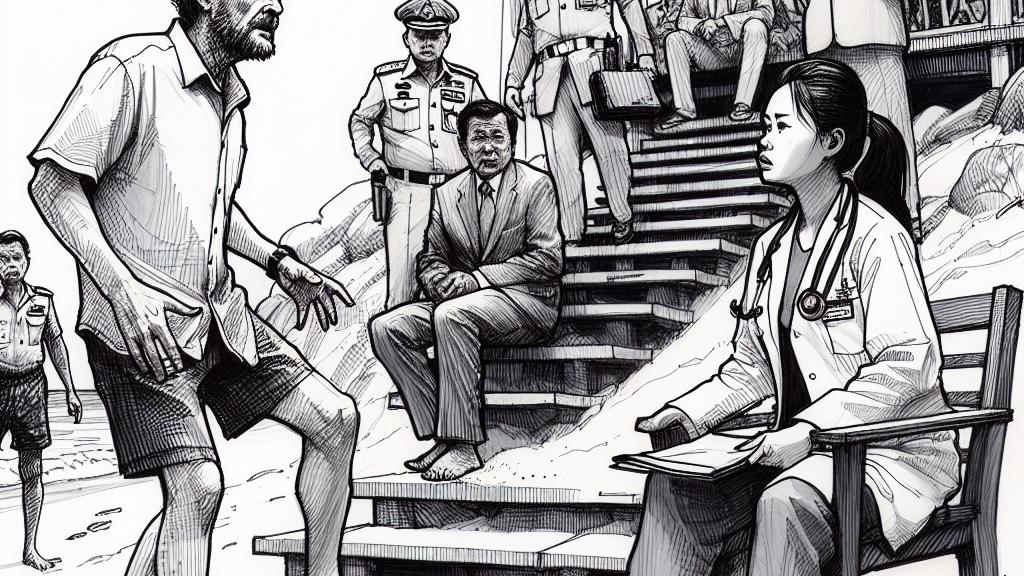Justice Served or Just a Beach Brawl? The Phuket Court's Controversial Ruling!
Overview
- Phuket court acquits Urs Fehr, accused of assaulting Dr. Tarndao Chandam.
- The ruling, based on reasonable doubt, invokes significant public outrage.
- Case highlights the complex issues of property rights amid local and tourist interactions.

Incident Overview
On February 24, 2024, at Yamu beach in Thalang district, Phuket, a confrontational incident unfolded involving Urs Fehr, a 45-year-old Swiss national, and Dr. Tarndao Chandam, a 26-year-old Thai doctor. Fehr was accused of kicking Dr. Chandam as she sat on steps believed to provide access to the beach. The Phuket Kwaeng Court ultimately acquitted him, citing reasonable doubt surrounding the claims of assault, as Fehr argued that he accidentally stumbled while approaching Dr. Chandam, believing her to be a trespasser due to a prior encounter with another tourist. Notably, the steps in question were found to be illegally constructed and were subsequently demolished, complicating the property rights discussion that fueled local tensions.
Public Reaction and Media Coverage
The acquittal of Fehr sparked intense public reaction, particularly on social media, where video footage of the incident circulated widely. Many members of the Phuket community demanded accountability, perceiving Fehr as a danger and initiating calls for his immediate deportation. Dr. Chandam's father publicly expressed the family's disappointment with the court's decision, revealing that his daughter has faced significant emotional distress due to the events. The case has raised concerns about the disparities in treatment between foreigners and locals, drawing attention to the need for a clearer framework regarding property rights and public access in heavily touristed areas. Dr. Chandam's plan to seek compensation and use the funds for beach management further adds to the ongoing discourse surrounding the impact of tourism on local resources.
Legal and Social Implications
This incident in Phuket underscores a broader conflict regarding property rights within the context of tourism. As local authorities grapple with balancing private ownership against public access, the outcomes from this case may shape future legislation and community policies aimed at protecting both residents and visitors. Experts argue that increased awareness and engagement are critical as residents push back against the potential privatization of public spaces, raising important questions about who has the right to access and enjoy these areas. Additionally, Dr. Chandam’s initiative to allocate any potential compensation towards community beach preservation efforts demonstrates a growing movement among locals advocating for sustainable tourism practices that prioritize environmental and social responsibility. Overall, this incident reflects the ongoing struggle to maintain harmony between local values, tourist interests, and legal standards in a rapidly changing landscape.

Loading...